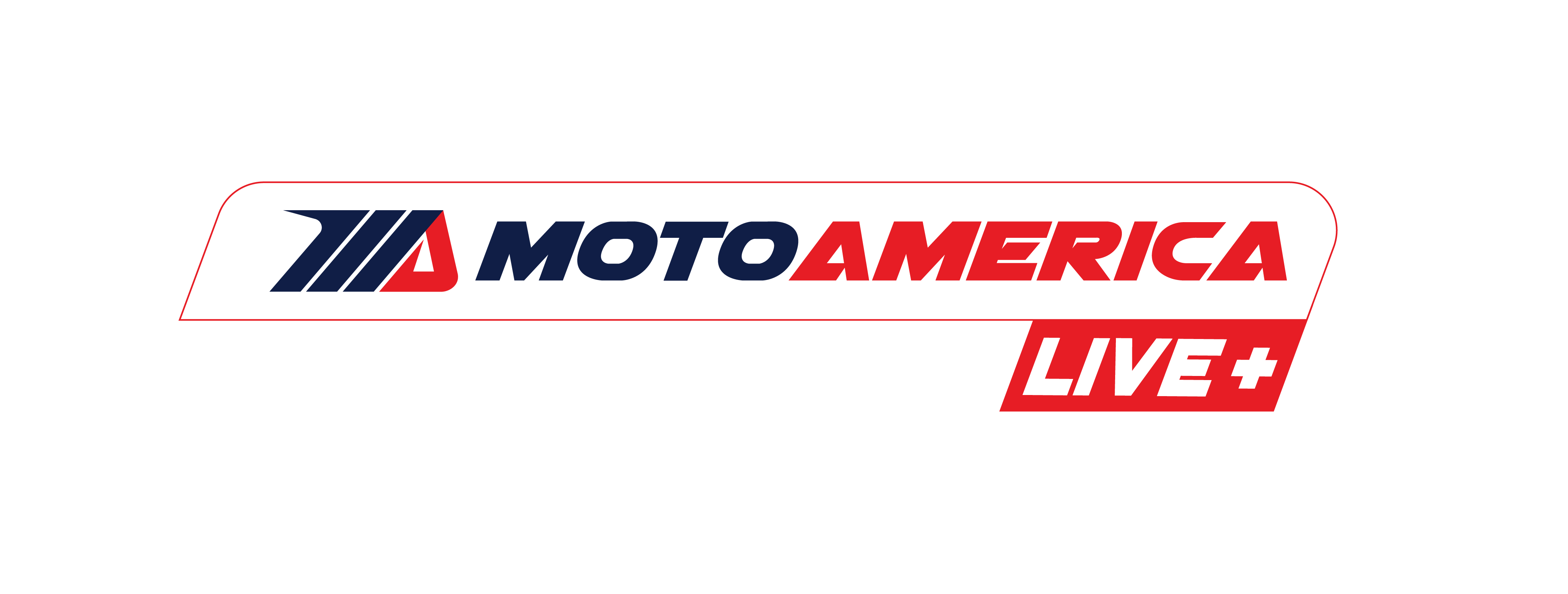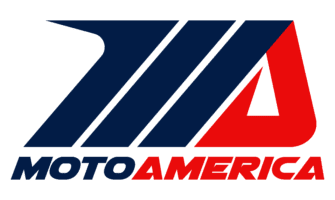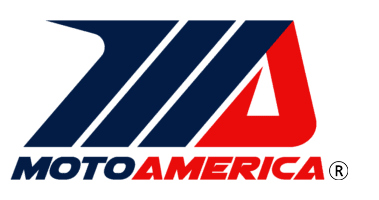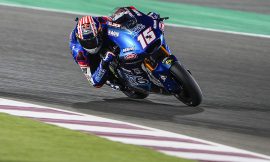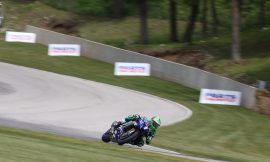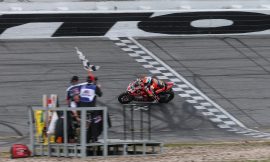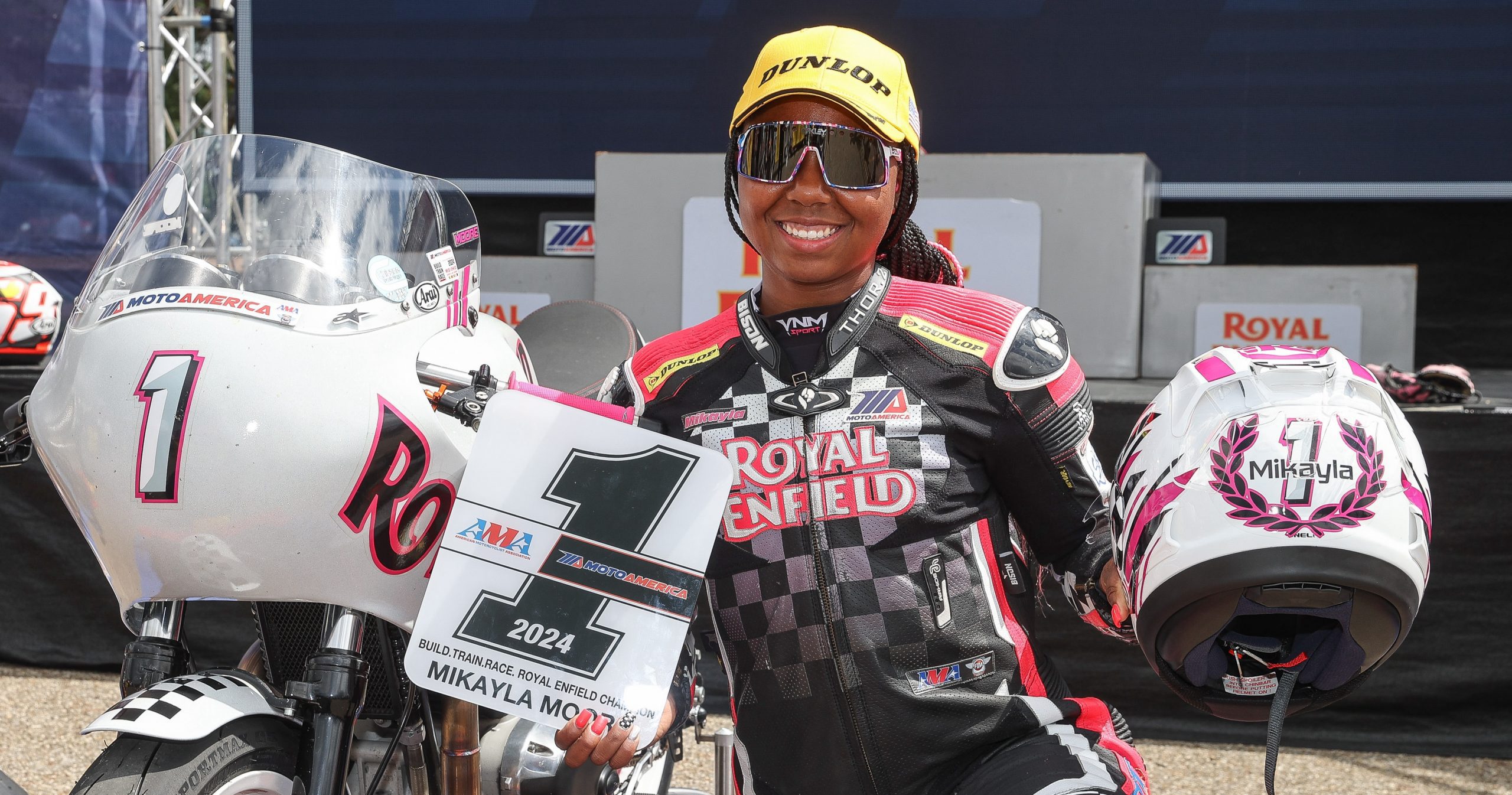
Fifteen races in the Royal Enfield Build. Train. Race. series were run in the 2023 and 2024 MotoAmerica seasons and Mikayla Moore won 14 of them. The only one she didn’t win was the one she didn’t start when a practice crash on a Twins Cup bike kept her out of race one at Road America. She came back the next day, a bit battered and bruised, and won race two by 23.9 seconds.
Moore didn’t just win races, she owned them. The margin of victory in those 14 wins? A tick over 18 seconds with the 21-year-old from Upper Marlboro, Maryland’s largest margin of victory coming in race two at Ridge Motorsports Park this past season – 44.1 seconds. Or in layman’s terms, a country mile.
Fortunately for the new women who will begin the 2025 Royal Enfield Build. Train. Race. series, and for the ones returning for another year, Moore will be moving onward and upward to a different MotoAmerica class, leaving track records in her wake for others to try and improve on as the series moves forward.
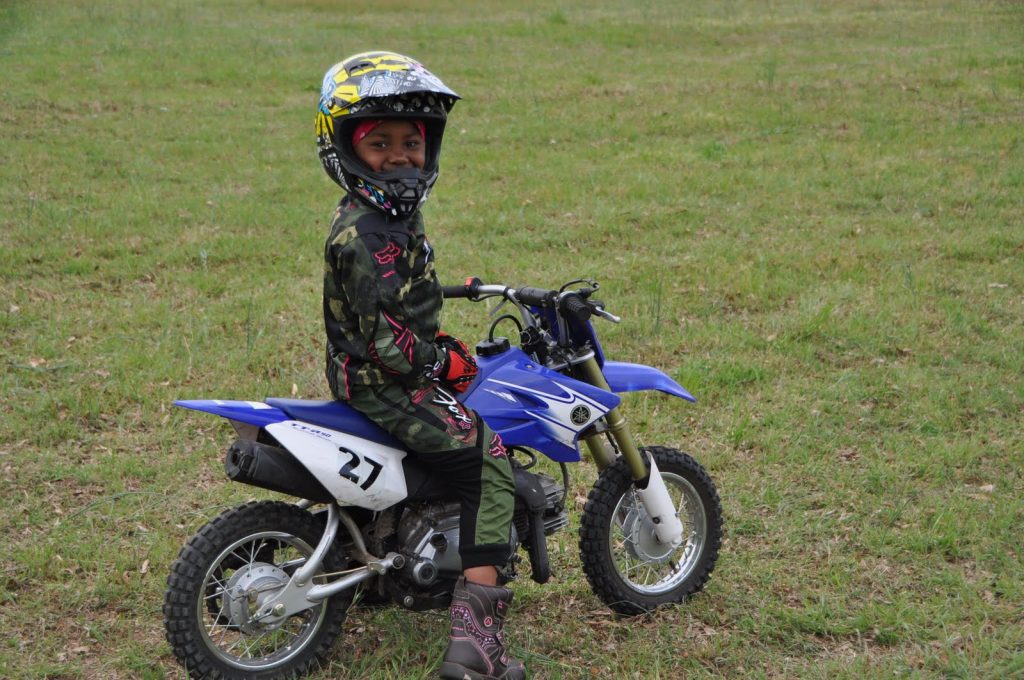
Moore leaves the Royal Enfield program as a two-time champion, something she could have only dreamed of a few years ago.
“Definitely not, because at the time, from a young age starting at six years old, it started with just fun,” Moore said when asked if she could have even imagined being a two-time champ at this point in her career. “When I was getting older, my dad put me into things like mini moto and New Jersey MiniGP, and then I transferred over into club racing with ASRA and CCS. In my head I’m like, MotoAmerica will be cool to get into, but I was thinking my introduction to MotoAmerica would be Junior Cup and not Build. Train. Race. So, when Build. Train. Race. came around and I was able to have a bit of success with that… I definitely wouldn’t have imagined it. But am I surprised that, at this time in my life, I have those two titles? No, because of the work that was put into getting them.”
Moore is grateful for the Royal Enfield Build. Train. Race. series as it allowed her to show her skills and earn her recognition in the MotoAmerica paddock that will help propel her to the next class, whether that be Twins Cup or something else.
“Yeah, absolutely, Build. Train. Race. has been great for me,” Moore said. “For instance, getting the opportunity to do Twins Cup twice this year with two different teams – one with Rodio Racing and the other one with OrangeCat (Racing). They saw how well I was doing at Barber, and Matt (Spicer) with Robem (Engineering) was like, ‘Hey, how would we feel about putting Mikayla on a Twins bike, just to see how she’ll do?’ Then it was almost the same scenario with OrangeCat. My dad had inquired about a Hooligan bike for me to ride, just to do track days with. It got into talking about a Twins bike with OrangeCat. They were like, ‘Well, the bikes are doing nothing.’ That turned into, ‘Hey, do you guys want to do COTA?’ So, BTR definitely offered a lot of things for me and definitely got me the recognition that I needed.”
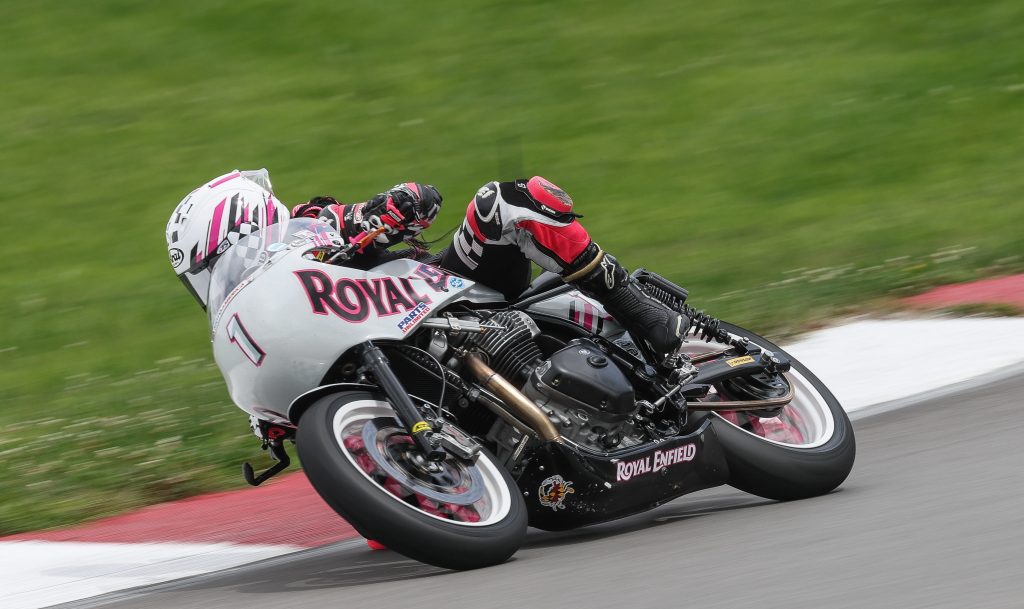
The BTR program is a well-oiled machine at this point with the racers and their Royal Enfield Continental GT 650s camped out for the racing weekends under the same awning, working on their bikes together before the battles begin.
“Off the track, we definitely did care for each other,” Moore said with a grin. “On the track, it may have been a different story with different people. But it was all like one big team because, at the end of the day, we’re technically all on the same bikes. The only thing that was making us different was how we rode the bikes, and then also how we set them up in terms of gearing or suspension that allow one to go faster than the other one.”
Moore thrives in the family atmosphere of the MotoAmerica paddock as that’s all she’s really known in her young career. Her father, Will, is always around, and her mom, Kamesha, worked for MotoAmerica in the merchandise truck at some of the rounds. The family also got to spend a fair share of its time at the podium as their daughter made a habit of winning races.
“It’s been like that since day one for us,” Moore said. “Now that I’m in MotoAmerica, my parents come to every round. Also just having their support meant a lot for me, especially having my dad because he has a motorcycle shop. So, he would take time out of his schedule to come out and support. It made things easier for me because I’m only one person in terms of being able to figure out the Royal Enfield because it’s such a unique bike in terms of the gearing. You only can do so much to it. You only have gearing and suspension that you can do. You can’t do anything to the motor. So, he would offer his insights that also played a role in my success.”
Moore has grown up around motorcycles. Her father owns a shop and Moore not only did her schoolwork in the office above the shop, but she also got her hands dirty. And loved every minute of it.
“Our location that we have now, he’s been there since 2015,” Moore said of her father’s business. “So next year will be our 10-year anniversary year. From a young age, at our house we had a shed in our backyard. My brother always told my dad, ‘I can picture us in a big shop and working on customers’ bikes.’ That ended up happening. I was homeschooled from fourth grade all the way up until graduation. In his shop, he had built a classroom upstairs for us. So, we’d do our homeschool classes upstairs and then come down once we were done with the work and help him with the bikes. Now I can do a whole motor swap without really needing any assistance. I love both worlds – racing and working on bikes.”
You were able to race in the Twins Cup class twice this past season with a best finish of ninth. What was the hardest part, adjusting to the bike or adjusting to a higher level of competition?
“With Rodio Racing, for instance, everything between Barber and Road America, I had a short window in terms of trying to get testing on an Aprilia because I had never ridden one before. I was able to do a race at Summit Point in West Virginia, and I did pretty well. But for Road America, I was doing double duty between the Royal Enfield and the Aprilia. For me, that weekend was a big adjustment because going from something like a Royal Enfield that’s only making about 47 horsepower and then getting on the Aprilia that’s making 90 plus. That was a little bit of the adjustment there and having to make sure that if you’re on the Royal Enfield, you’ve got to be a little bit easier and smoother with your inputs and your transitions and things like that. But also, the competition was definitely different. BTR I was always up front, so for me my goal was always like, how much faster can I go each lap? Versus on the Twins bike… I’m not used to having a pit board and them saying what position I’m in and how many seconds the next person is behind me, and things of that nature. So, kind of a little bit of adjusting for both. But once I did it, I thought about it like, ‘Man, this is going to be a little interesting…’ But once I did it, everything kind of just came to me.”
You don’t learn much about racecraft when you’re winning races from start to finish with a gap of over 20 seconds, but her background in club racing has taught Moore plenty about that.
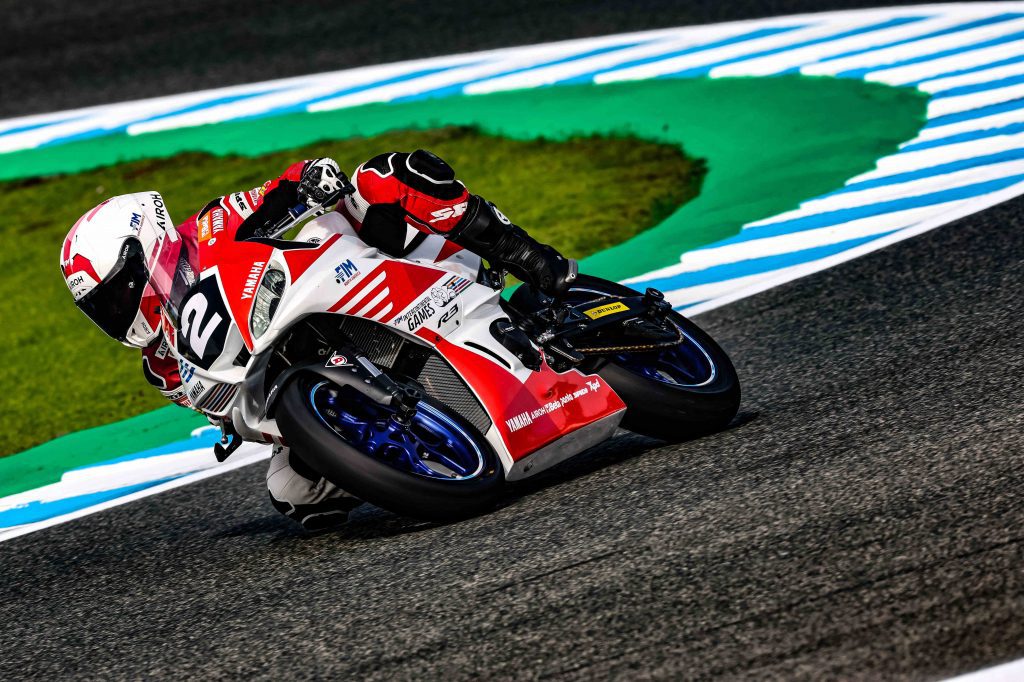
“I’m not concerned in terms of my racecraft because with BTR, I was club racing as well,” Moore said. “So, the competition is always close. In terms of racecraft, it’s interesting because I did COTA in Twins Cup and everyone was always like, ‘Watching you get through the crowd is pretty interesting to see, because you just do it so smoothly.’ I guess people always see me up front, so it’s what did you learn and what is your takeaway from a program like that? What skills are you necessarily showing? For me, I’m like, because I do club racing… that’s the other side that a lot of people don’t really see that I do. So, it’s a surprise factor when I am able to go out there and finish with people that have been in that class in Twins Cup. At Road America, I finished ninth. At COTA, I know I was in the top 15.”
So, we know what Moore did in her two years in the Royal Enfield class, but do we know what she didn’t do? She didn’t crash. Not once. Not in practice, not in a race. Zilch.
“That thing stayed on two wheels all two years,” Moore said. “Nothing against anybody, but I don’t see how anyone can crash that thing. Granted, it is a tank. It has some weight to it. Once you’re on the bike, it’s so smooth. People or anyone who does have an incident with the Royal Enfield, it comes down to your inputs, because it is a unique bike. Some bikes have slipper clutches so you can downshift a certain way and it can kind of save you, whereas when you’re on a Royal Enfield you may not get so lucky. I can say that out of anyone who has ridden a Royal Enfield, I probably pushed that thing… At the Ridge, I thought I was going to crash it, just because how quick I was going and the lap times I was able to achieve on it. But at the same time, I was like, ‘with how smooth everything is, the bike will hold up. I’ll hold up with it.’
“Also, for this year, the new ladies… I told them the biggest advice that I could give to you guys is… Because a lot of them came from the little bikes, in terms of Yamaha R3s or 400s, was like, this Royal Enfield is totally different. You have to find your own style to ride this bike and to actually go fast on it and try not to take what you do on the R3 or 400, whatever bike that you have at home, and think that you can apply the same inputs or techniques to it. It can help you sometimes, but also it can harm you depending on what kind of situation you’re in when you’re battling.”
If Moore lacked competition in Royal Enfield Build. Train. Race. her post-season trip to Spain for the Intercontinental Games definitely made up for that.
“It was a lot of fun,” Moore said of the event at the Circuito de Jerez – Angel Nieto. “I really didn’t know what to expect out of it, besides racing. I knew I was going over there to race. When we got there, I think we had about three days of downtime and in terms of the media and the equipment fitting and things like that. So, to ride that track… I would come back over here just to race this track again. But the competition was totally different than how it is back there. There’s no holding back. It was Friday and we had an hour to ride the track. We’re all trying to figure out the track, all the MotoAmerica folks that hadn’t been there before. These guys and girls are just passing us and I’m like, ‘Holy cow. I need to figure this turn out and these guys are just railing through here.’ Then when it came time for the race… In the beginning just watching when we all took off, I’m like, ‘I feel like carnage is about to happen. This is like survival mode out here. We’re survival racing right now.’ I just felt like you had to be at the right place at the right time to make certain maneuvers, but then even once you made the maneuver, it was crazy. At the end I was able to go back and watch the racing, and just to see one minute one person is in fourth, and the next thing they jump all the way down to 10th. Even with the qualifying. Sure, I was dropping time and getting better each lap, but then I was still in the same position because everyone else was doing the same exact thing.”
Although Moore was in the Supersport 300 class that saw her on a Yamaha YZF-R3, it was the harder class with gaggles of riders battling for spots from first to 30th.
“Yeah, it was really interesting,” Moore said. “I did Junior Cup in 2023. So, in Junior Cup, I was new to that class with MotoAmerica. They were like, ‘In order to get a good time, you have to draft someone. You have to find something to pocket, because if you’re by yourself you’re just going to be out there turning laps.’ So, I had to have that same mentality for the R3. You can’t really go out there by yourself. Even my mile an hour, my mile an hour was probably one of the ones that was lowest, because I didn’t have anyone in front of me or I didn’t have anyone to draft.”
While it’s too early to know what she’s doing next year, we do know that Moore will be in the MotoAmerica Championship.
“Next year is still up in the air right now,” she said. “Currently what I’m doing is getting ready to start my off-season training. So, when a phone call is made or an opportunity presents itself and someone is like, ‘Hey, here’s an opportunity. What do you want to do?’ At least I want to be physically and mentally ready to take on the next venture that comes up.”


